Image of 1971 Chevrolet Vega, Note: These illustrations use artistic license and may differ from actual historical models.
Performance Metrics
Fundamental Metrics
Emotional Appeal
MMP Rating
| Engine Specifications | |
|---|---|
| Engine Options: | Inline-4 |
| Displacement Range: | 140 cu in (2.3 L) |
| Horsepower Range: | 90-110 hp |
| Torque: | 138 lb-ft |
| Compression Ratio: | 8.0:1 |
| Ignition System: | Electronic |
| Cooling System: | Water-cooled |
| Performance Specifications | |
| 0-60 Time: | 12.0 seconds |
| 1/4 Mile Time: | 18.5 seconds |
| Top Speed: | 100 mph |
| Transmission and Drive | |
| Drive Type: | RWD (Rear Wheel Drive) |
| Transmission Type: | 3-speed manual, 4-speed manual, 3-speed automatic |
| Fuel and Efficiency | |
| Fuel System Type: | Carburetor |
| MPG: | 20-25 mpg |
| Dimensions and Brakes | |
| Brakes: | Front disc, rear drum |
| Wheelbase: | 97.0 in |
| Weight: | 2,200 lbs |
Note: Specifications for classic cars are given to the best of our ability, considering the limited and variant data available.
1971 Chevrolet Vega: An Ambitious Underdog in Automotive History
The 1971 Chevrolet Vega emerged as a symbol of American ingenuity, designed to tackle the surge of compact imports flooding the market. Born from the drawing boards of General Motors, the Vega was a response to consumers' growing appetite for smaller, more fuel-efficient vehicles. Its conception was a daring move by Chevrolet, aiming to redefine the compact car segment with a touch of American flair. One unique fact that stands out is that the Vega was initially transported vertically by train in specially designed railcars, which was an innovative logistics solution at the time.
Design and Innovation
The Vega's exterior styling was sleek and modern, with a long hood and short deck that gave it a sporty profile. The car's lines were clean and uncluttered, reflecting the minimalist design trends of the early '70s. Inside, the Vega offered a straightforward cabin with an emphasis on functionality. While some criticized the quality of materials as less than luxurious, it was typical for a vehicle in its class during that era. Technologically, the Vega boasted an aluminum engine block and an overhead camshaft—a rarity among American cars at the time.
Color options for the Vega ranged from vibrant hues like "Sunflower Yellow" and "Bright Blue Metallic" to more subdued tones such as "Antique White." The most iconic body style was arguably the hatchback coupe, which combined practicality with a hint of sportiness. Other options included notchback sedans and station wagons, catering to a variety of consumer preferences.
Historical Significance
The Chevrolet Vega's introduction marked a pivotal moment in automotive history. It represented GM's earnest attempt to penetrate the compact car market dominated by foreign manufacturers. The Vega set itself apart with its all-aluminum engine and its role in pioneering new methods of vehicle distribution. Although its legacy is marred by reliability issues, its ambitious design laid groundwork for future advancements in small car engineering.
Performance and Handling
Performance-wise, the 1971 Vega's standard engine delivered modest output, propelling it from 0-60 mph in around 12 seconds—a reasonable figure for economy-focused compacts of its time. It wasn't built for speed but rather efficiency and affordability. Handling was generally considered adequate, though not exceptional; it managed everyday driving scenarios competently enough. Drivers often noted the engine's distinctive hum and the car's compliant ride quality during urban commutes.
Ownership Experience
The Vega found its niche as an economical daily driver but also gained popularity among enthusiasts who saw its potential for customization. Maintenance and reliability were points of contention; early models faced several issues that could be challenging for owners to address without proper expertise. However, many parts were readily available due to high production numbers.
Fun Facts
A fun fact about the Vega is that it was named Motor Trend's Car of the Year in 1971—an accolade that seemed promising at its launch. Despite facing criticism over time, it has also enjoyed cult status among certain collectors who appreciate its unique place in automotive history.
Collector's Information
Today, a well-preserved 1971 Chevrolet Vega can fetch varying prices depending on condition and originality, with values generally ranging from $5,000 to $20,000 or more for exceptional examples. Production numbers were substantial—over two million Vegas were built during its run—yet finding one in excellent condition can be challenging due to rust issues and past neglect. As such, well-maintained models are becoming increasingly rare and potentially appreciating assets within collector circles.
Conclusion
The 1971 Chevrolet Vega stands as an ambitious chapter in GM's storied history—a compact car with grand aspirations that faced significant hurdles yet left an indelible mark on automotive culture. Whether remembered for its innovative spirit or its cautionary tale of ambition versus execution, the Vega remains a fascinating subject for classic car enthusiasts around the world.
1971 Chevrolet Vega Catalog of Parts
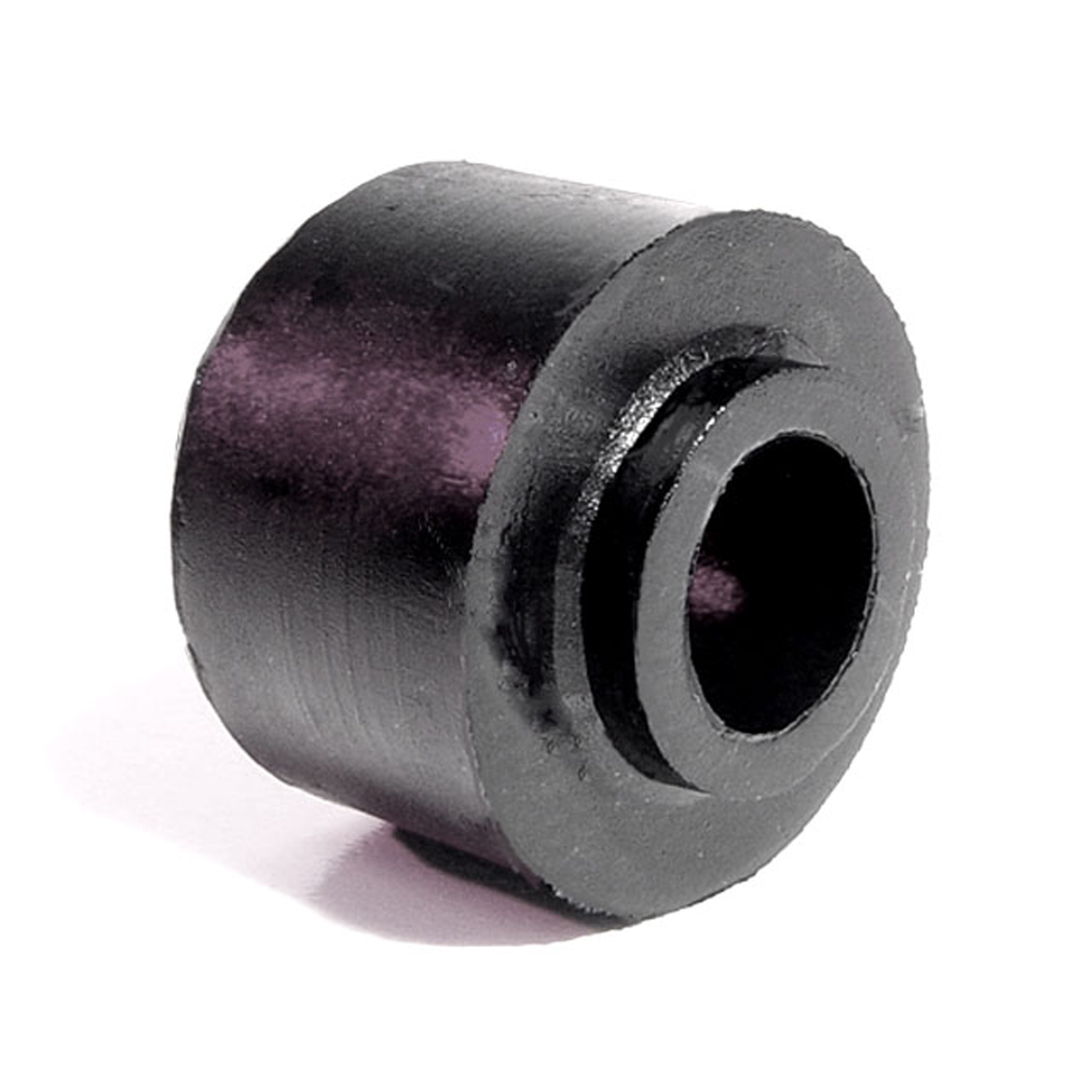 1971 Chevrolet Vega Shock Absorber Grommet. 1" bottom O.D., 3/4" high-BN 1Shock Absorber Grommet. 1" bottom O.D., 3/4" high., with 7/16" I.D. Each
1971 Chevrolet Vega Shock Absorber Grommet. 1" bottom O.D., 3/4" high-BN 1Shock Absorber Grommet. 1" bottom O.D., 3/4" high., with 7/16" I.D. Each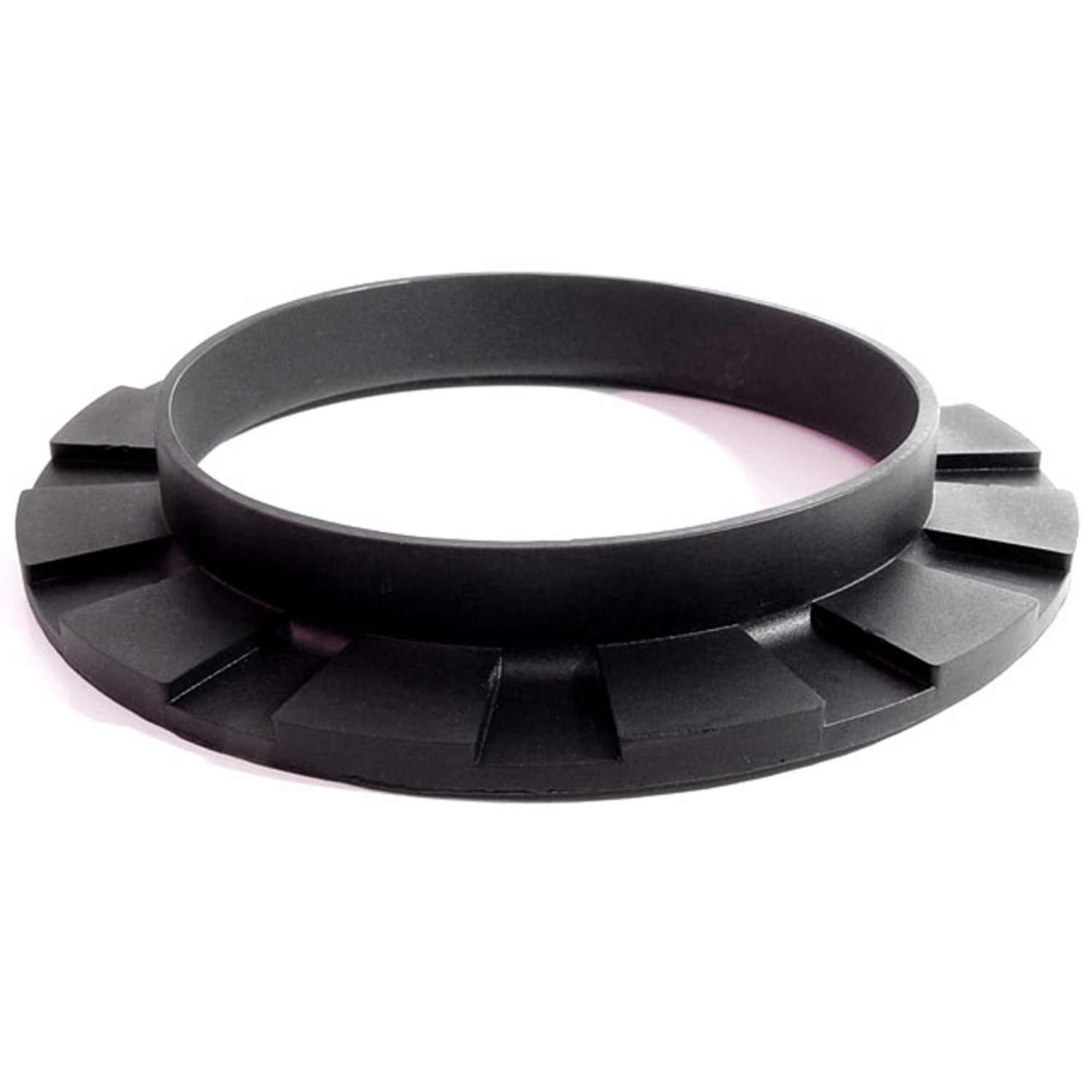 1971 Chevrolet Vega Front coil-spring insulator-BN 110Front coil-spring insulator. Fits '41-'60 Oldsmobile and '50-'83 GM passenger models. 5-3/8 in. OD x 3-3/4 in. ID x 3/4 in. high with 13/16 in. wide bottom flange 1/4" thick, 12 flutes. Each.
1971 Chevrolet Vega Front coil-spring insulator-BN 110Front coil-spring insulator. Fits '41-'60 Oldsmobile and '50-'83 GM passenger models. 5-3/8 in. OD x 3-3/4 in. ID x 3/4 in. high with 13/16 in. wide bottom flange 1/4" thick, 12 flutes. Each.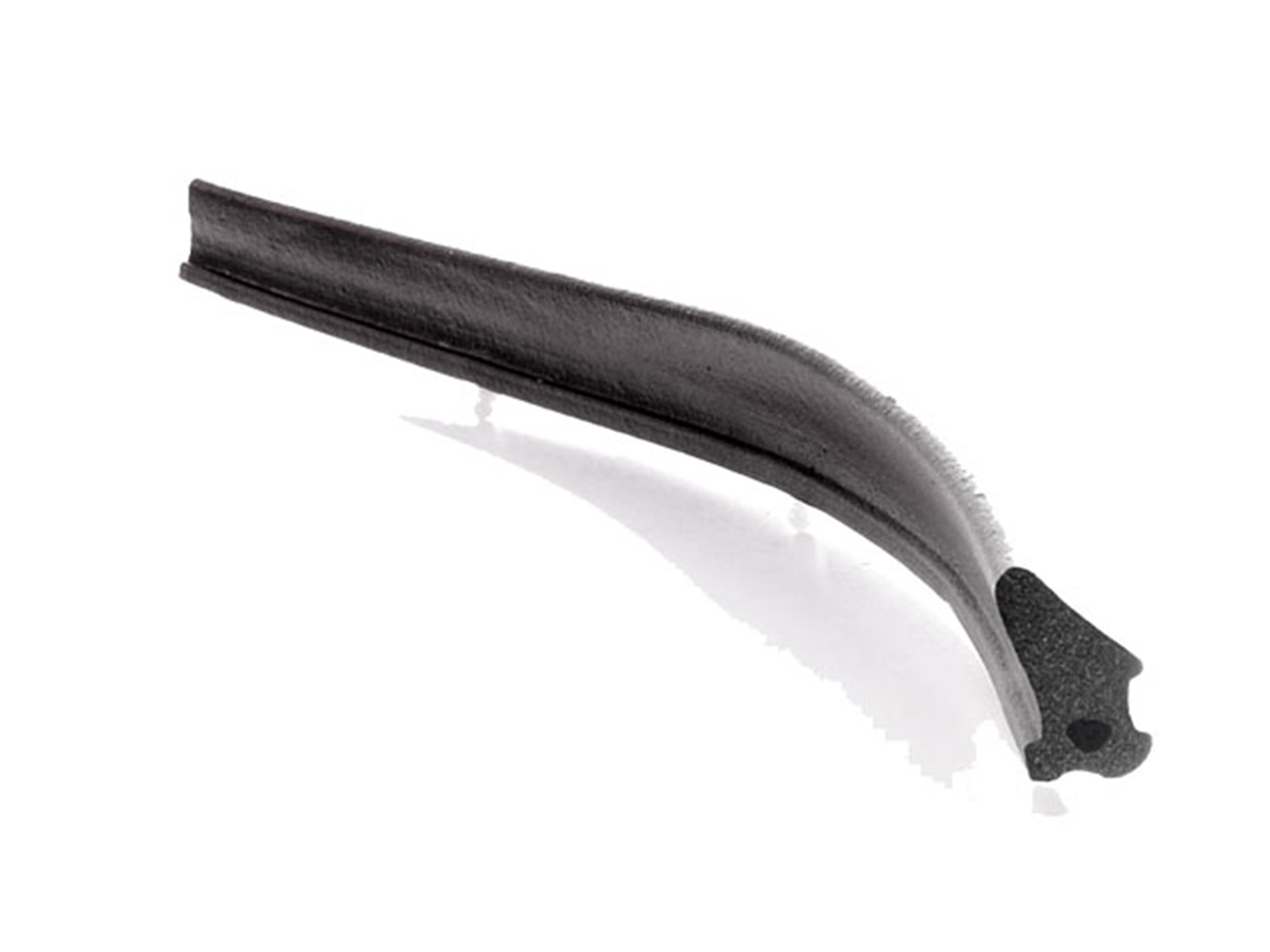 1971 Chevrolet Vega Door Side Seal-C/LP 40-KDoor Side Seal. Made of smooth skin sponge extrusion, with clips installed. (For seal without clips, see LP 40-K) Sold by the foot.
1971 Chevrolet Vega Door Side Seal-C/LP 40-KDoor Side Seal. Made of smooth skin sponge extrusion, with clips installed. (For seal without clips, see LP 40-K) Sold by the foot.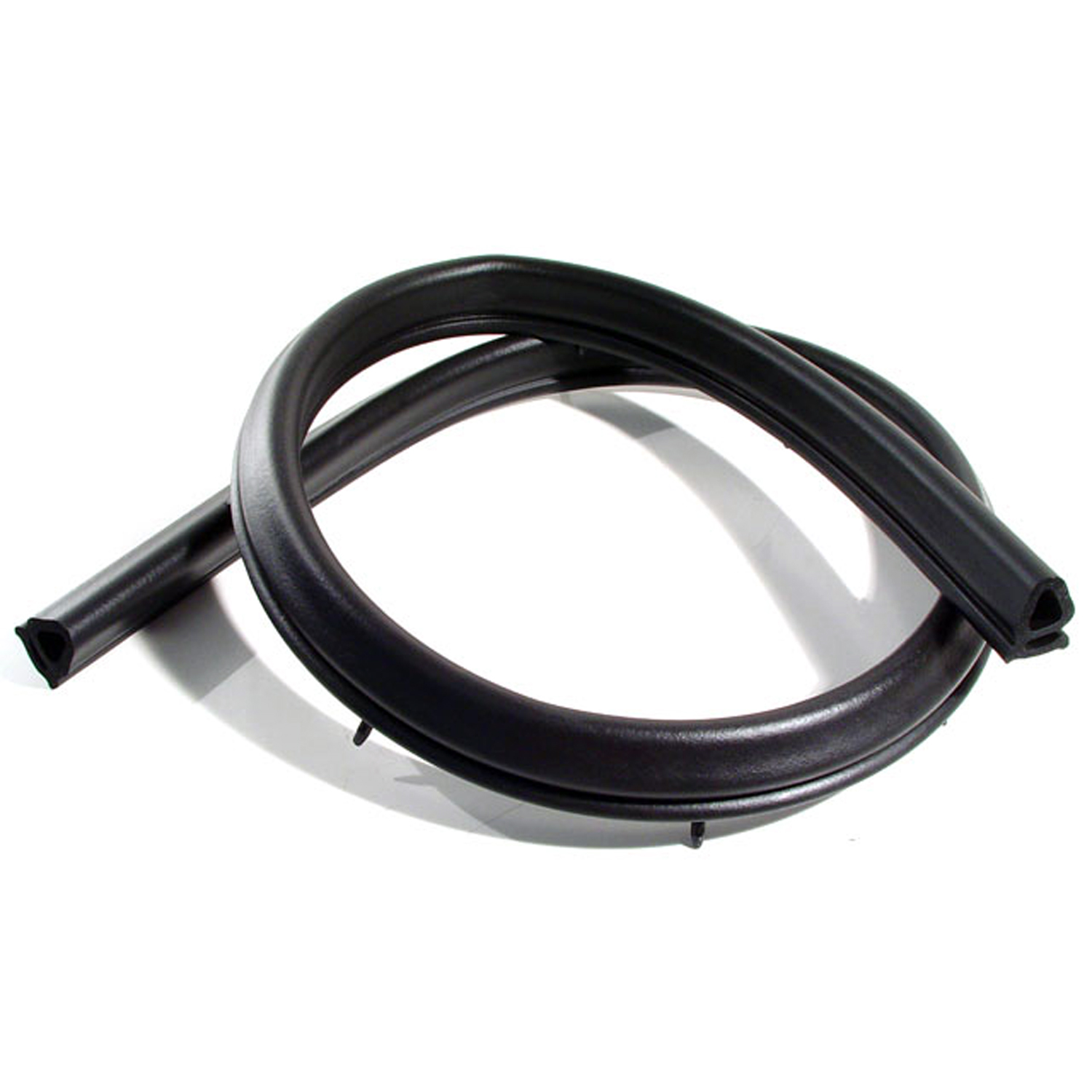 1971 Chevrolet Vega Hood to Cowl Seal, 71-80 GM H Body, Each-CS 13-HHood to Cowl Seal, 71-80 GM H Body, Each. Replaces OEM # 9829415. 50" Long. Comes with five mounting clips.
1971 Chevrolet Vega Hood to Cowl Seal, 71-80 GM H Body, Each-CS 13-HHood to Cowl Seal, 71-80 GM H Body, Each. Replaces OEM # 9829415. 50" Long. Comes with five mounting clips.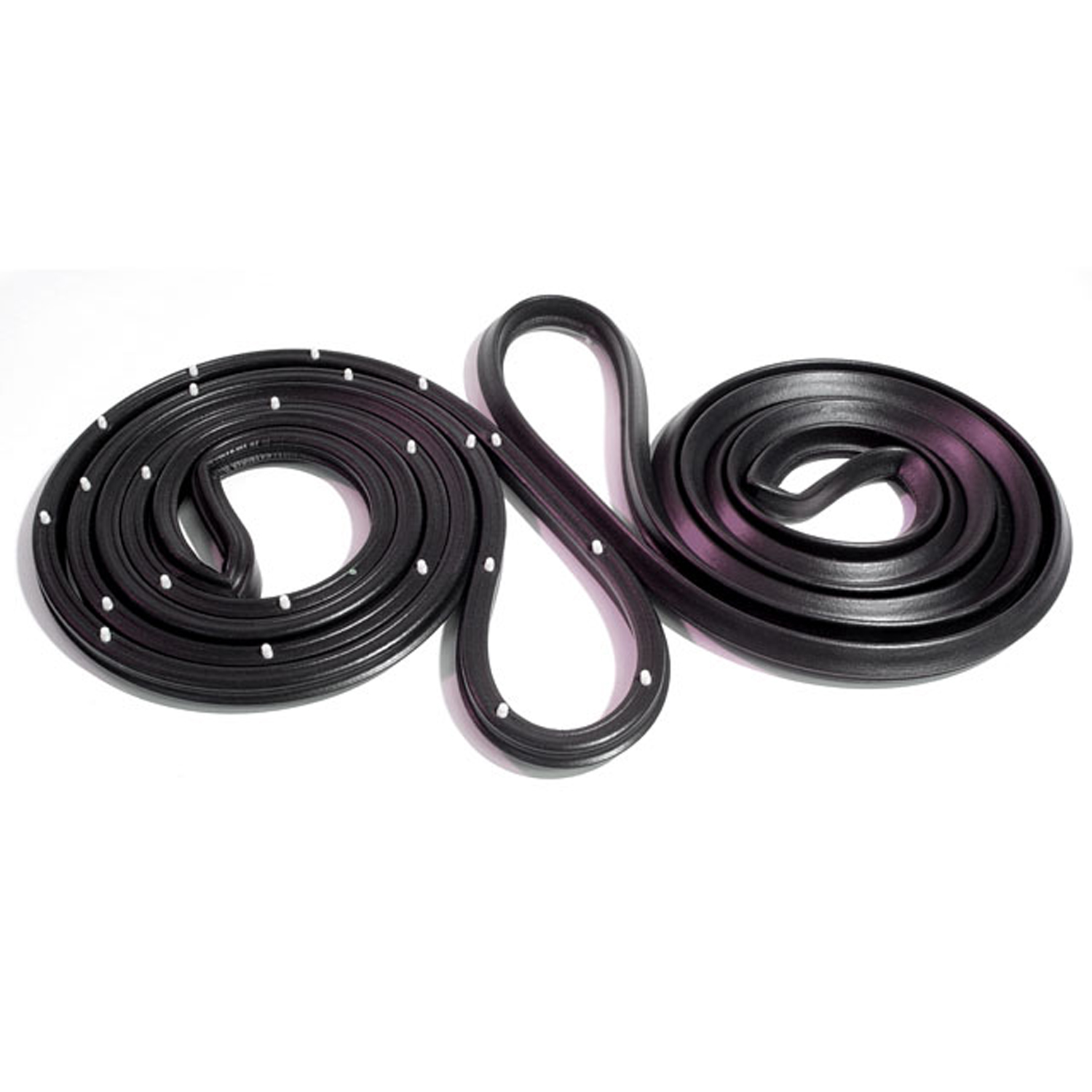 1971 Chevrolet Vega Molded Door Seals with Clips-LM 13Molded Door Seals with Clips. For 2-door hatchbacks (does not fit Monza). Replaces OEM #9883773/4. 139-1/2" long. Pair R&L
1971 Chevrolet Vega Molded Door Seals with Clips-LM 13Molded Door Seals with Clips. For 2-door hatchbacks (does not fit Monza). Replaces OEM #9883773/4. 139-1/2" long. Pair R&L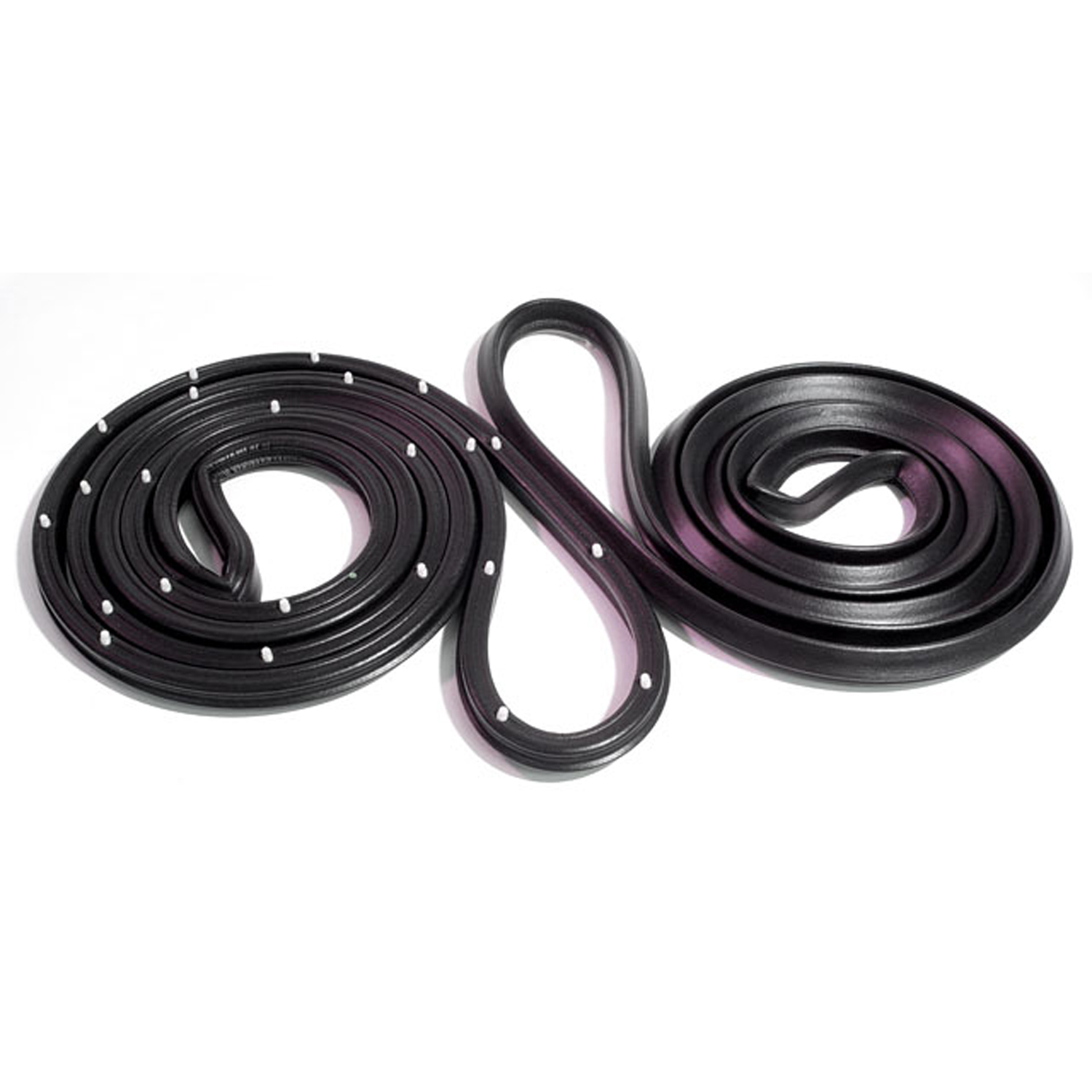 1971 Chevrolet Vega Molded Door Seals with Clips-LM 13-AMolded Door Seals with Clips. For 2-door coupe and wagon (does not fit Monza). Replaces OEM #9883771/2. 147-1/2" long. Pair R&L
1971 Chevrolet Vega Molded Door Seals with Clips-LM 13-AMolded Door Seals with Clips. For 2-door coupe and wagon (does not fit Monza). Replaces OEM #9883771/2. 147-1/2" long. Pair R&L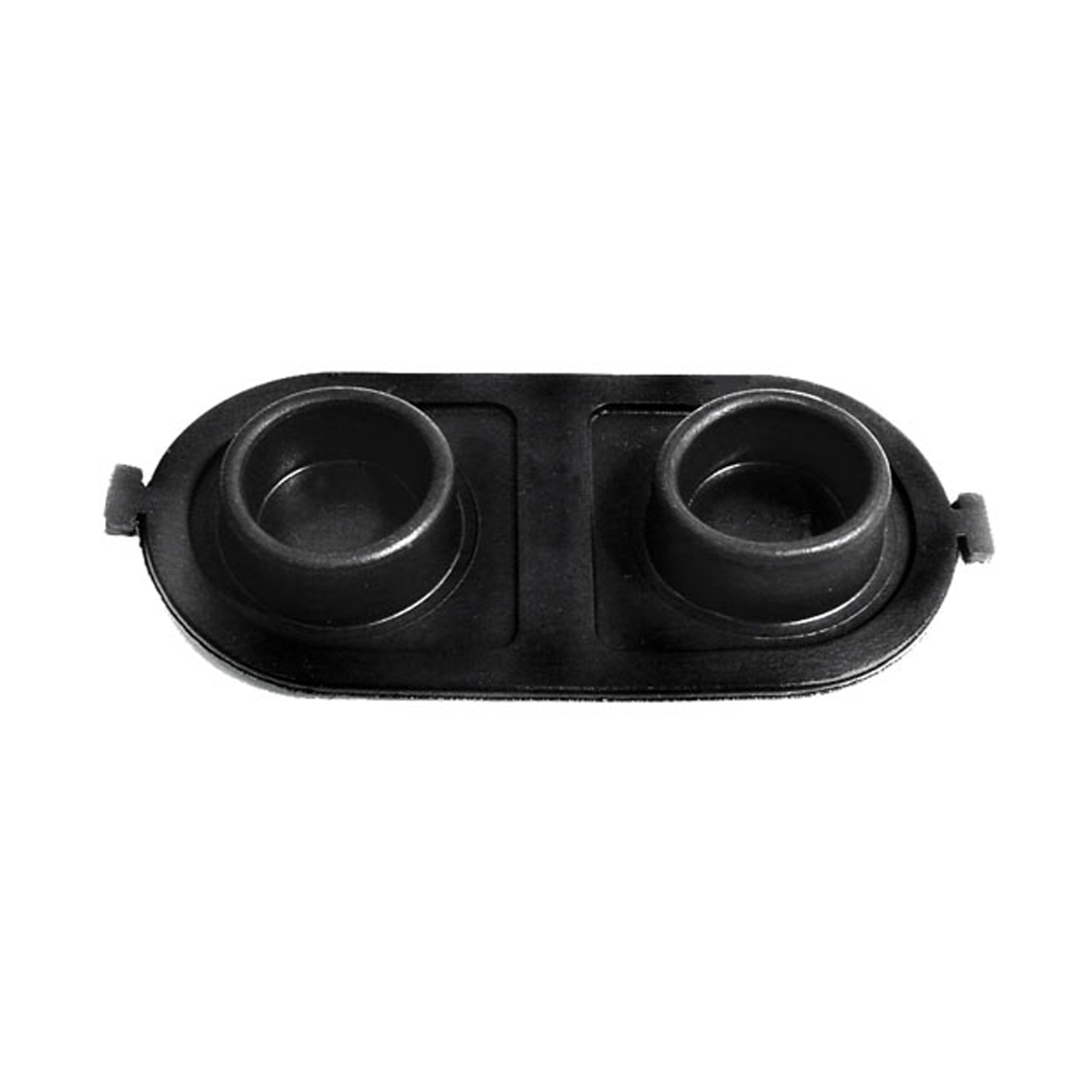 1971 Chevrolet Vega Brake Master Cylinder Cover Seal. Replaces OEM #5470861-RP 2-EBrake Master Cylinder Cover Seal. Replaces OEM #5470861. 5" X 2-1/2". Each
1971 Chevrolet Vega Brake Master Cylinder Cover Seal. Replaces OEM #5470861-RP 2-EBrake Master Cylinder Cover Seal. Replaces OEM #5470861. 5" X 2-1/2". Each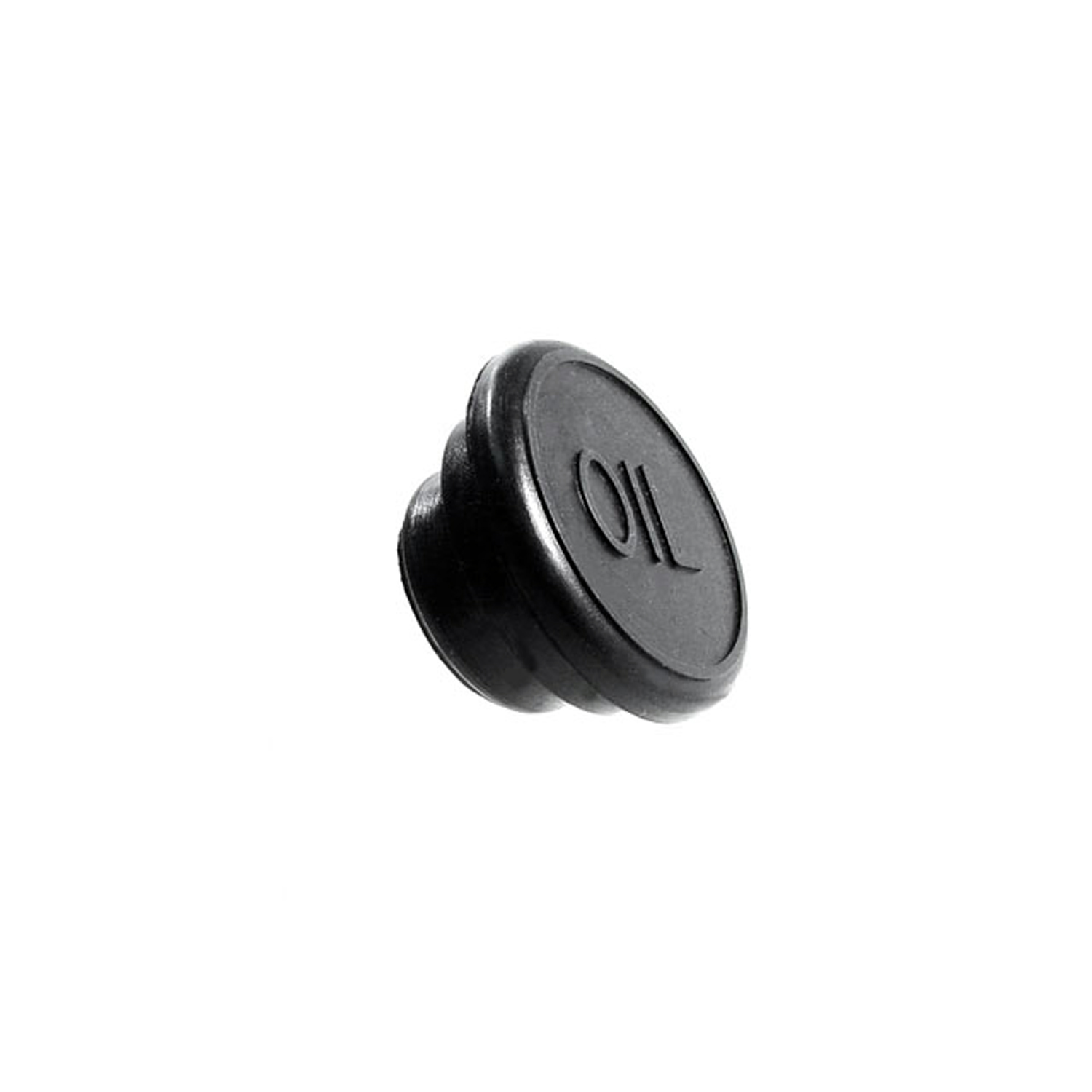 1971 Chevrolet Vega Oil Filler Hole Cap. Made of rubber-RP 8Oil Filler Hole Cap. Made of rubber. Fits a 1-3/16" to 1-1/4" hole. Each
1971 Chevrolet Vega Oil Filler Hole Cap. Made of rubber-RP 8Oil Filler Hole Cap. Made of rubber. Fits a 1-3/16" to 1-1/4" hole. Each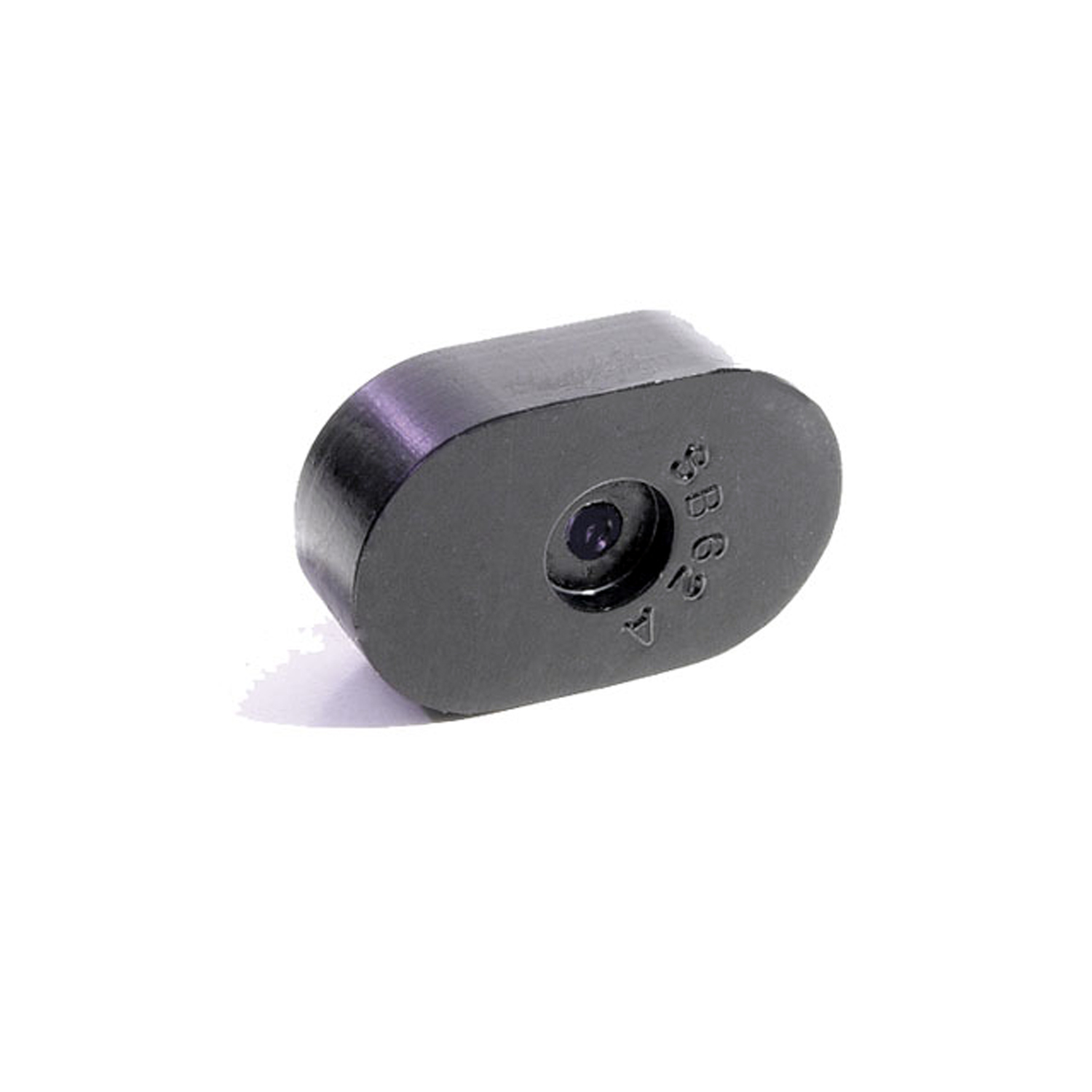 1971 Chevrolet Vega Seat Bumper. Made with steel core like original-SB 62-ASeat Bumper. Made with steel core like original. 1-1/2" long, 7/16" thick. Two used per car. Each
1971 Chevrolet Vega Seat Bumper. Made with steel core like original-SB 62-ASeat Bumper. Made with steel core like original. 1-1/2" long, 7/16" thick. Two used per car. Each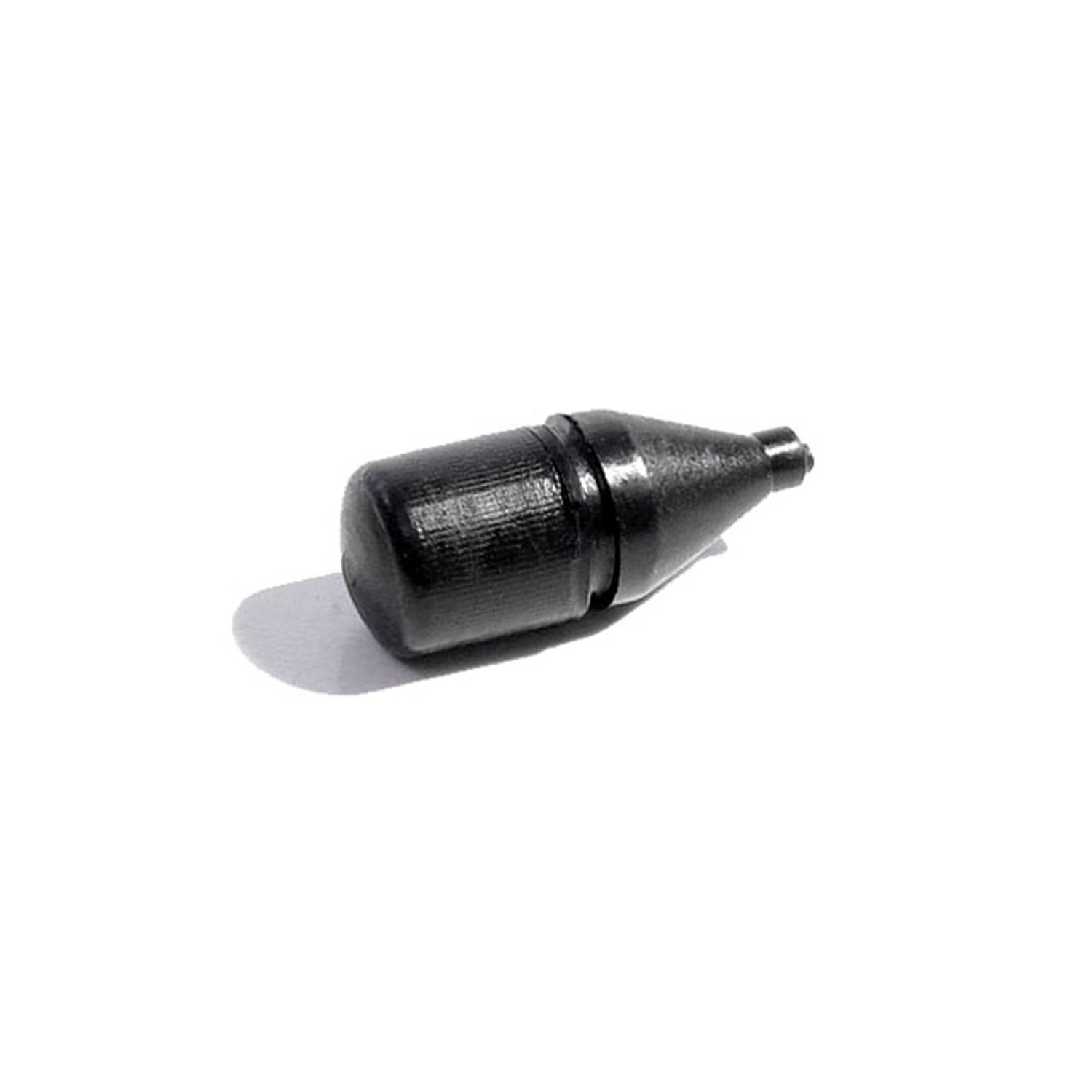 1971 Chevrolet Vega Fuel Door Bumper. 7/8" high, 5/16" O.D. Each-SB 81Fuel Door Bumper. 7/8" high, 5/16" O.D. Each
1971 Chevrolet Vega Fuel Door Bumper. 7/8" high, 5/16" O.D. Each-SB 81Fuel Door Bumper. 7/8" high, 5/16" O.D. Each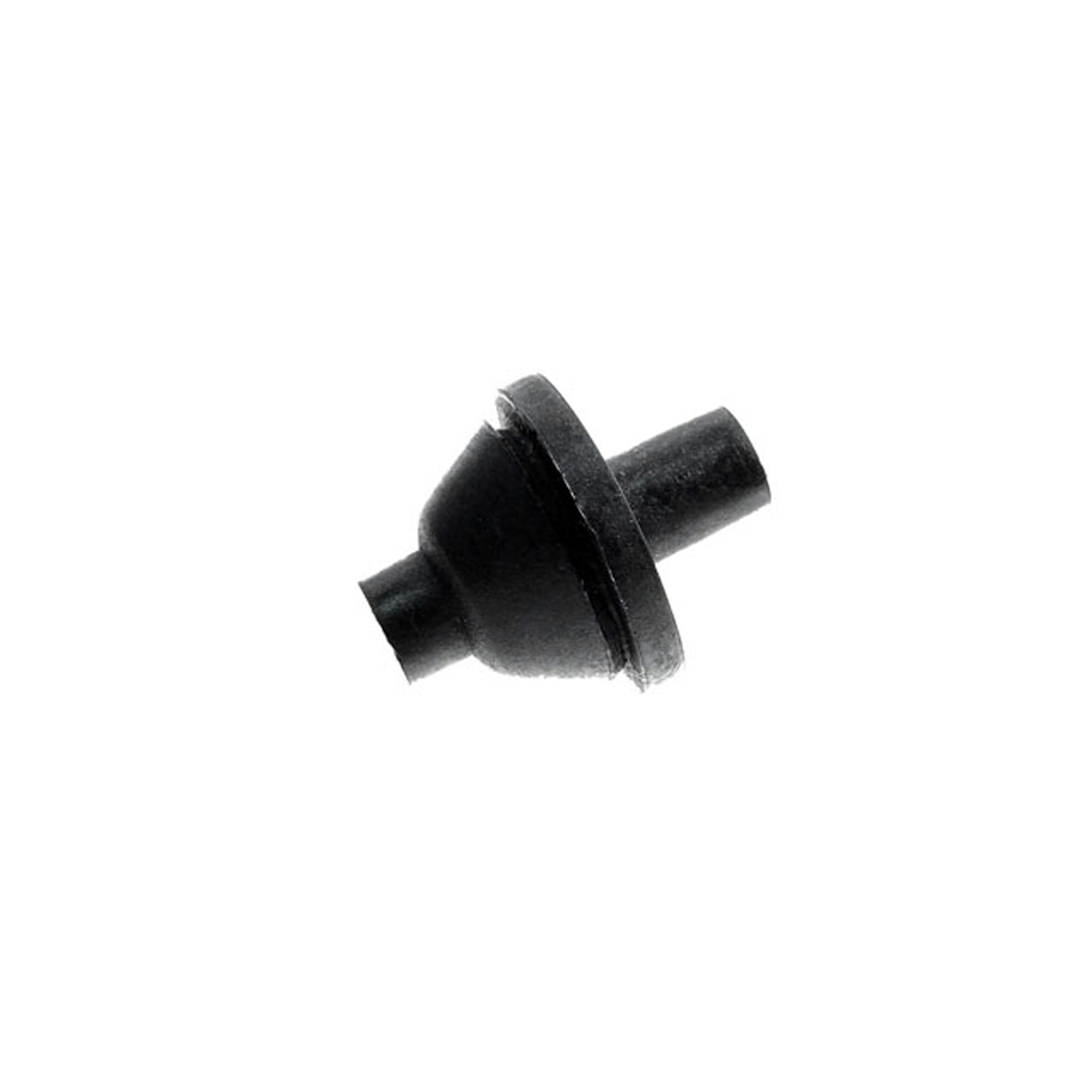 1971 Chevrolet Vega Dash and Firewall Grommet. Single-hole type is for one wire-SM 101Dash and Firewall Grommet. Single-hole type is for one wire. Each
1971 Chevrolet Vega Dash and Firewall Grommet. Single-hole type is for one wire-SM 101Dash and Firewall Grommet. Single-hole type is for one wire. Each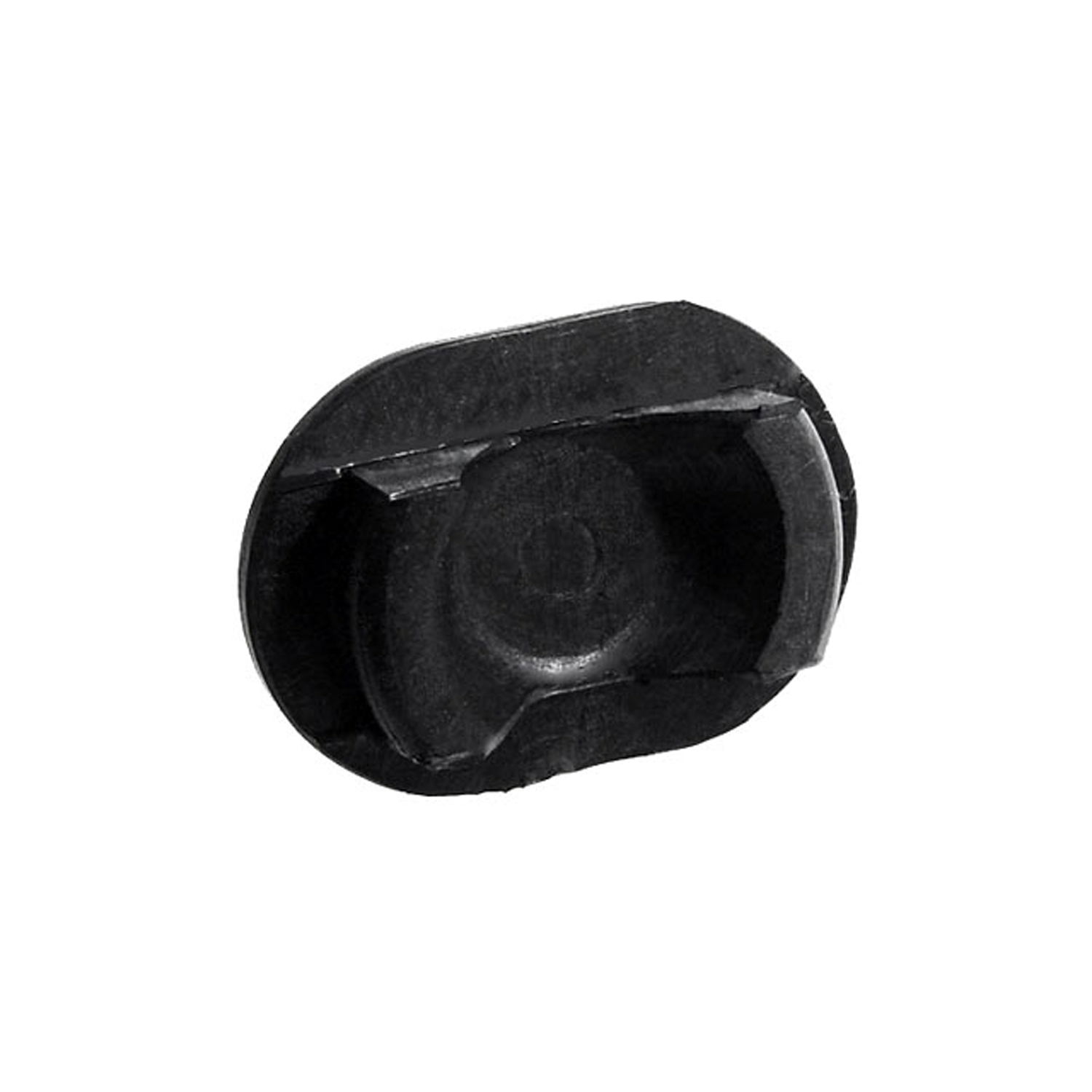 1971 Chevrolet Vega Timing Hole Plug. For 6-cylinder engines. 1-3/4" X 1-1/4"-SM 59Timing Hole Plug. For 6-cylinder engines. 1-3/4" X 1-1/4". Each
1971 Chevrolet Vega Timing Hole Plug. For 6-cylinder engines. 1-3/4" X 1-1/4"-SM 59Timing Hole Plug. For 6-cylinder engines. 1-3/4" X 1-1/4". Each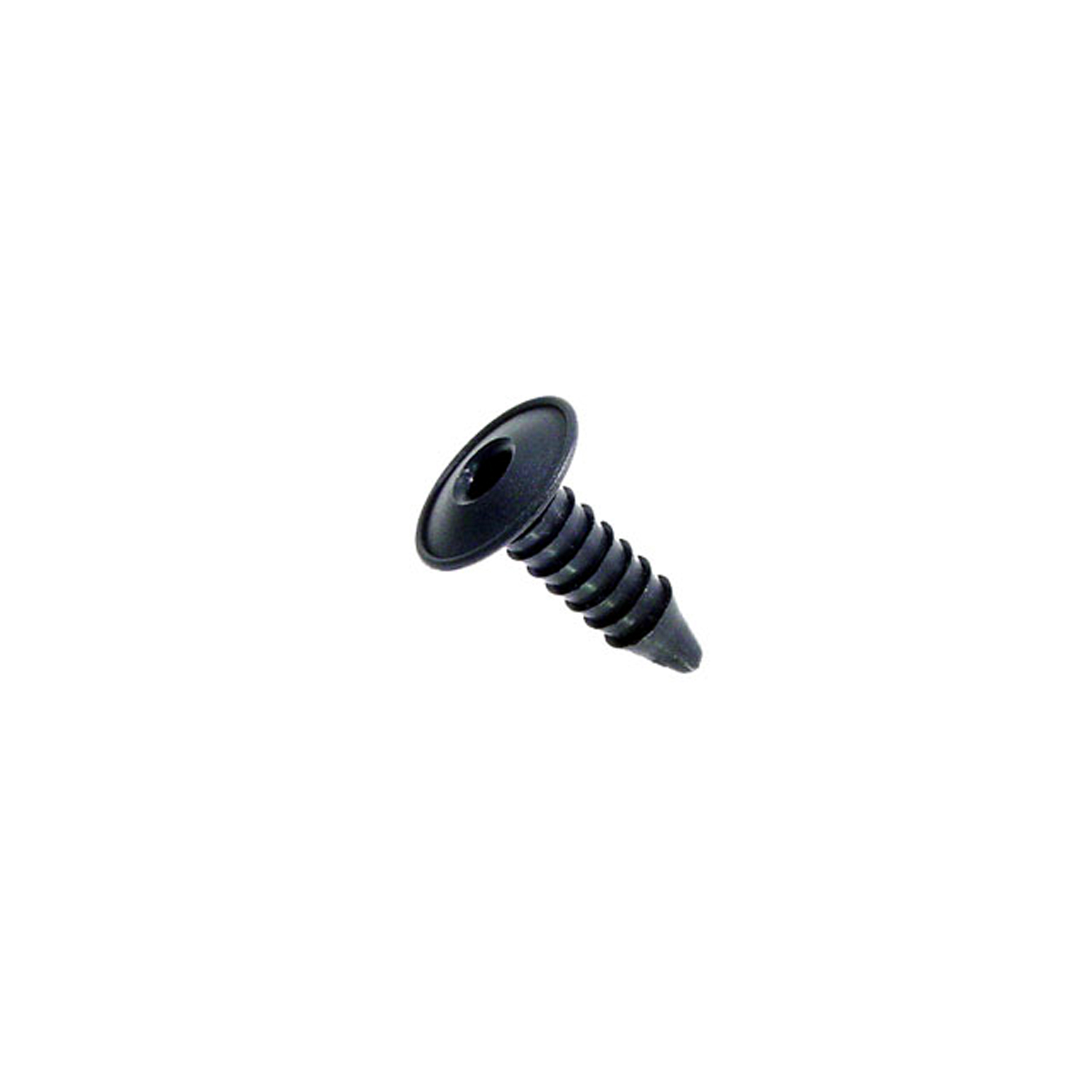 1971 Chevrolet Vega Firewall insulation fastener. 1 in. dia. W head. 1-1/2 in. L-SM 80-AFirewall insulation fastener. 1 in. dia. W head. 1-1/2 in. L. Replaces OEM#'s (GM) 7642589 and (AMC) 4001934. Black. Each.
1971 Chevrolet Vega Firewall insulation fastener. 1 in. dia. W head. 1-1/2 in. L-SM 80-AFirewall insulation fastener. 1 in. dia. W head. 1-1/2 in. L. Replaces OEM#'s (GM) 7642589 and (AMC) 4001934. Black. Each.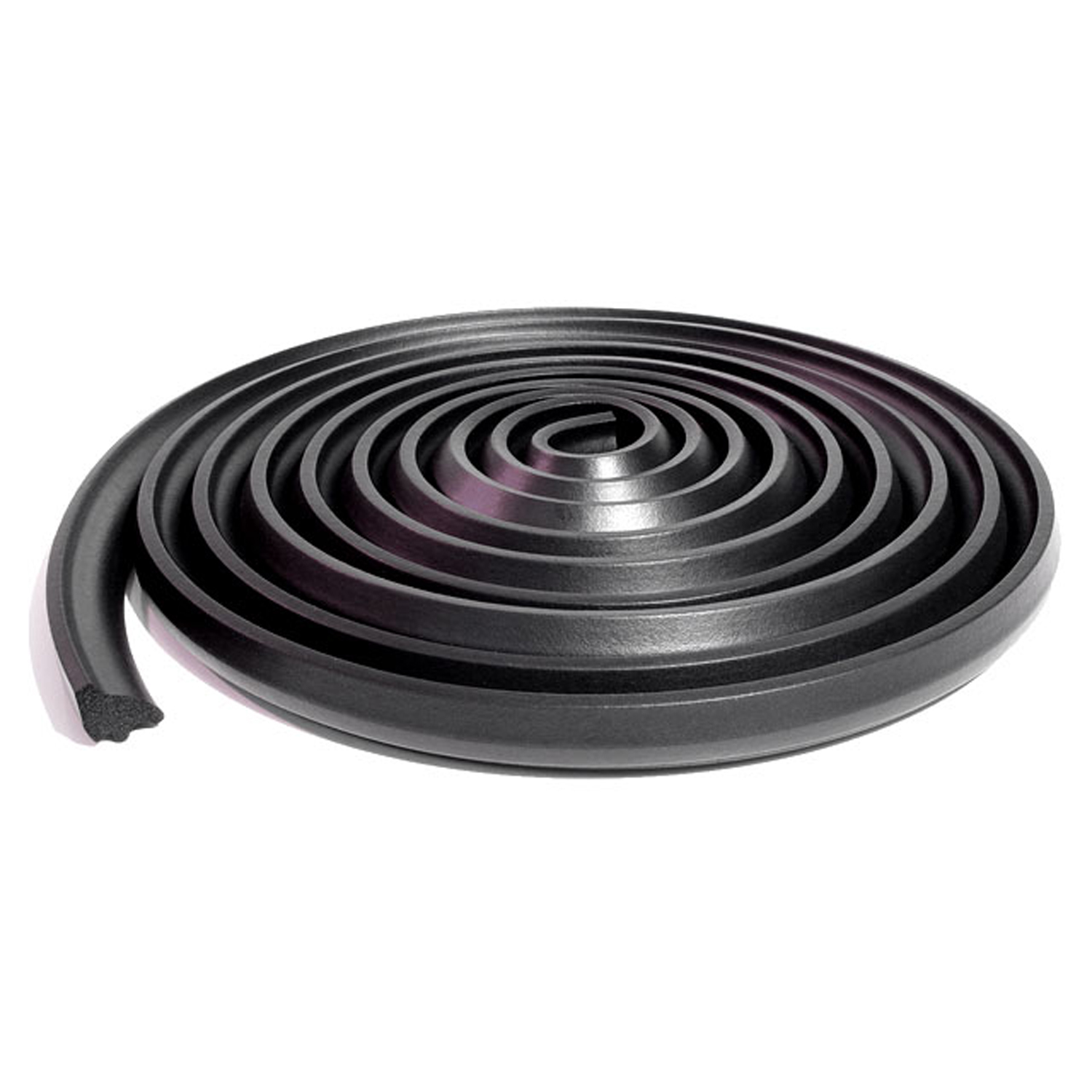 1971 Chevrolet Vega Hatchback seal-TK 46-C/18Hatchback seal. Fits '71-'77 Chevy Vega, '75-'76 Chevy Cosworth Vega and '75-'77 Pontiac Astre. 18 ft. long. Each.
1971 Chevrolet Vega Hatchback seal-TK 46-C/18Hatchback seal. Fits '71-'77 Chevy Vega, '75-'76 Chevy Cosworth Vega and '75-'77 Pontiac Astre. 18 ft. long. Each.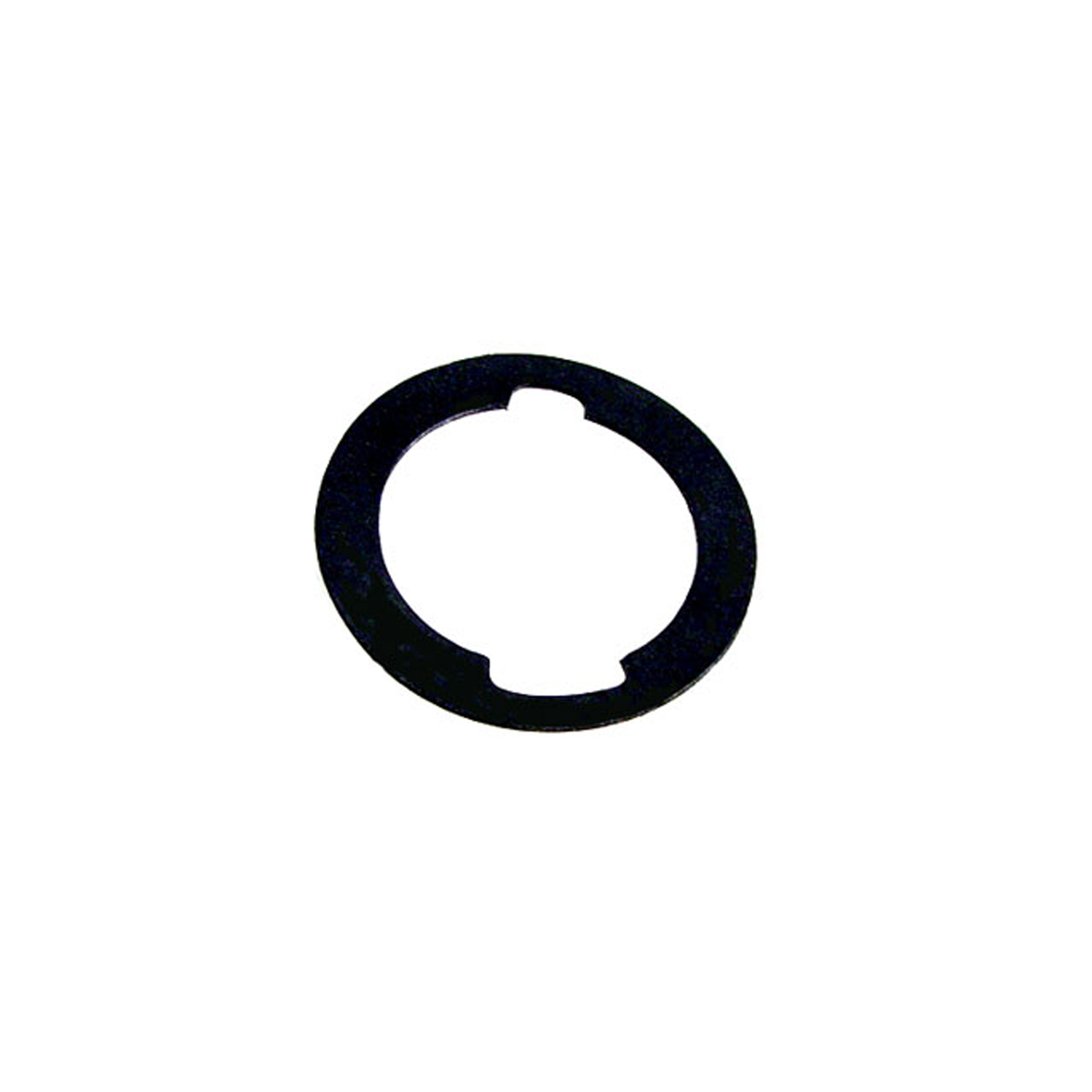 1971 Chevrolet Vega Unbeaded Door and Trunk Lock Gasket. 1-3/16" O.D., 7/8" I.D-UM 1600-100Unbeaded Door and Trunk Lock Gasket. 1-3/16" O.D., 7/8" I.D. Each
1971 Chevrolet Vega Unbeaded Door and Trunk Lock Gasket. 1-3/16" O.D., 7/8" I.D-UM 1600-100Unbeaded Door and Trunk Lock Gasket. 1-3/16" O.D., 7/8" I.D. Each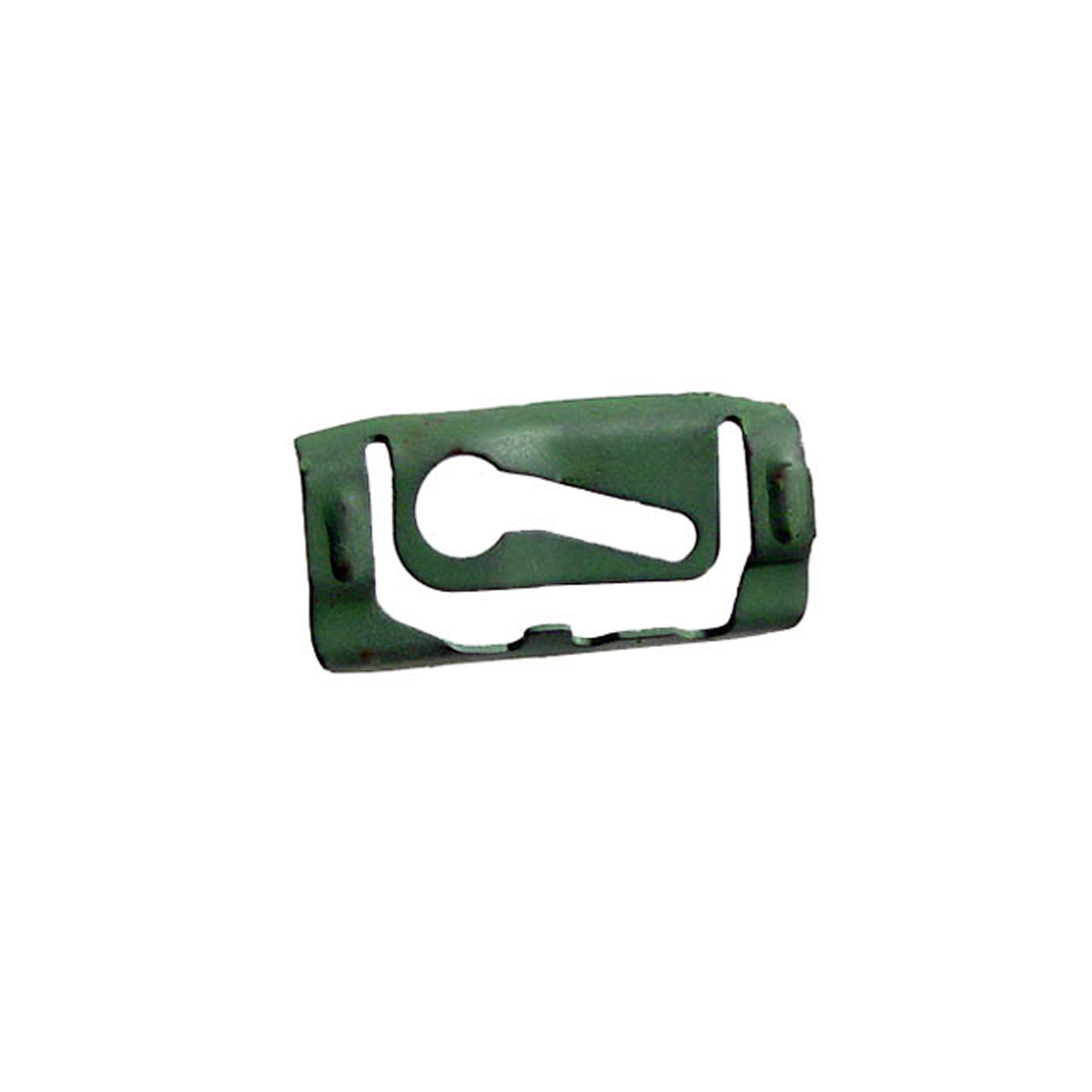 1971 Chevrolet Vega Quarter Window Reveal Molding Clip. Made of Steel-WF 205Quarter Window Reveal Molding Clip. Made of Steel. 1-3/8" X 11/16". Each
1971 Chevrolet Vega Quarter Window Reveal Molding Clip. Made of Steel-WF 205Quarter Window Reveal Molding Clip. Made of Steel. 1-3/8" X 11/16". Each 1971 Chevrolet Vega Rear Windshield Reveal Molding Clip. Made of steel-WF 211Rear Windshield Reveal Molding Clip. Made of steel. 15/16" X 3/4". Each
1971 Chevrolet Vega Rear Windshield Reveal Molding Clip. Made of steel-WF 211Rear Windshield Reveal Molding Clip. Made of steel. 15/16" X 3/4". Each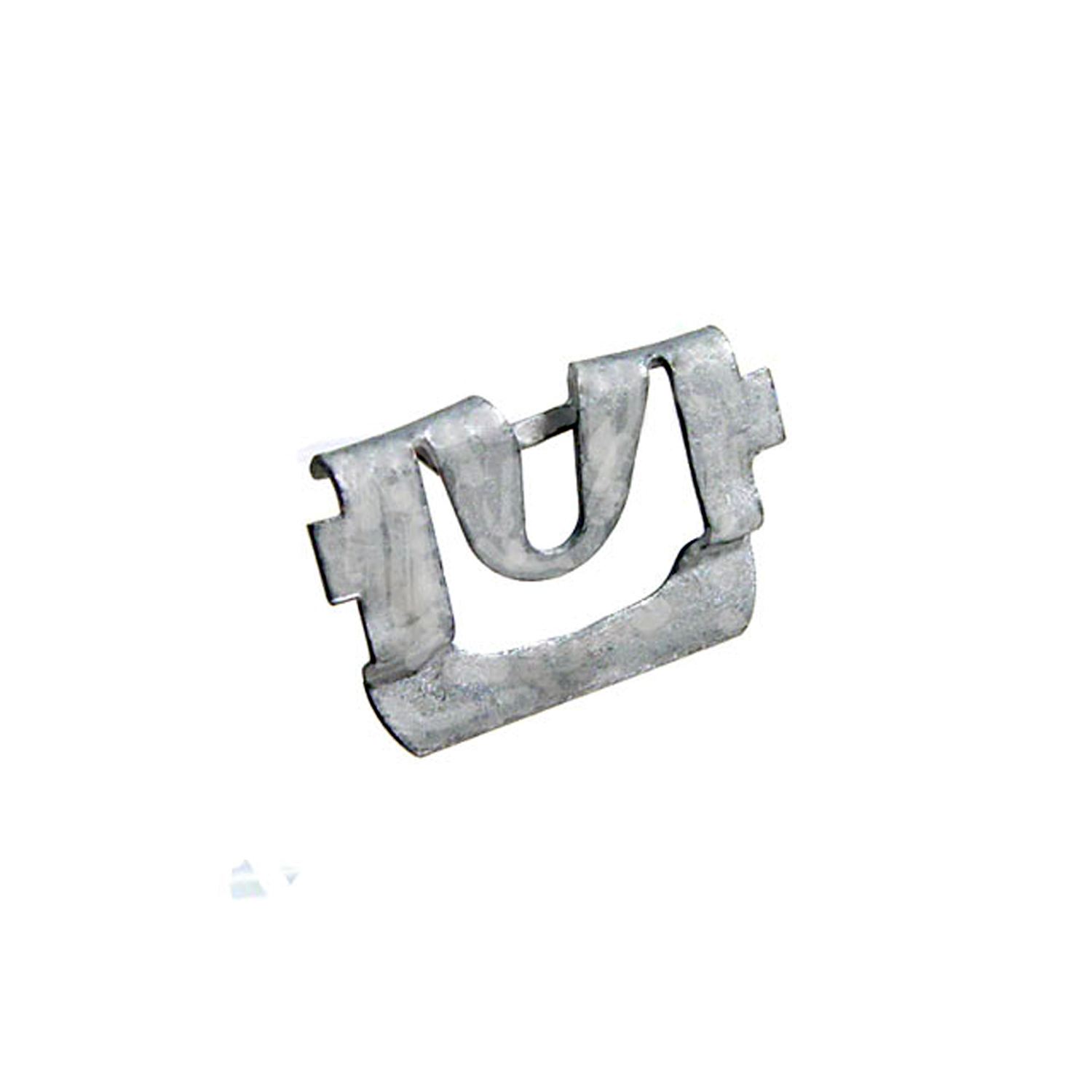 1971 Chevrolet Vega Windshield Reveal Molding Clip. Made of steel-WF 223Windshield Reveal Molding Clip. Made of steel. 1/1/8" X 3/4". Each
1971 Chevrolet Vega Windshield Reveal Molding Clip. Made of steel-WF 223Windshield Reveal Molding Clip. Made of steel. 1/1/8" X 3/4". EachWhy Choose Metro?
For over 100 years, Metro Moulded Parts has been the pinnacle of quality in classic car restoration parts. Our commitment to precision and authenticity in every component ensures a perfect fit and an OEM-level appearance.
- Expert Craftsmanship & Quality: Each part is a testament to our dedication to reliability and perfection, crafted from original designs and thoroughly tested.
- Advanced Technology: We use cutting-edge techniques to create flawless, long-lasting parts that surpass others in performance.
- SuperSoft Sponge – The Ultimate Door Seal: Not only are our door seals 30% softer than competitors', but they're also guaranteed to never leak. They effectively reduce wind and road noise, enhancing your classic car's comfort and driving experience.
- Proudly American: Our parts are a product of American craftsmanship, made in the USA with a spirit of excellence and heritage.
- Unrivaled Warranty: We back our products with a 30-year industry-leading warranty, a testament to our confidence in their quality.
Join us in preserving the legacy of classic cars with parts that are crafted for perfection, not just made.

